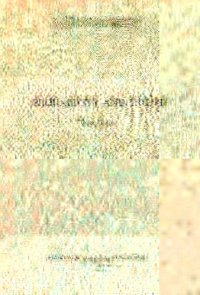
Ebook: Provability and Truth
Author: Torkel Franzen
- Genre: Mathematics // Logic
- Series: Acta Universitatis Stockholmiensis
- Year: 1987
- Publisher: Almqvist & Wiksell International
- Language: English
- pdf
According to mathematical realism, the truths or facts of mathematics are not dependent on human knowledge, and in particular not on being provable. In the words of the mathematician G.H.Hardy, "Mathematical theorems are true or false; their truth or falsity is absolute and independent of our knowledge of them." Mathematical anti-realism has it that all mathematical truth must in some way or another come down to the concrete realities of rules, meaning, human practices and inclinations: "For after all, in the end every question about the expansion of ^2 must be capable of formulation as a practical question concerning the technique of expansion." (Ludwig Wittgenstein) The thesis poses two questions: what is the role in our thinking of mathematical realism, and how are we to understand the natural appeal of the anti-realistic view? These questions are considered in relation to elementary arithmetic, where mathematical realism is generally recognized as having a particularly strong hold on our thinking. The answers given in the thesis are based on a characterization of realism as consisting in a certain use of mathematical statements in non-mathematical contexts, rather than on the usual association of mathematical realism with the use of classical logic in mathematical reasoning. It is argued that mathematical realism thus conceived does play an essential role in our thinking about rules, machines, possibilities, formal systems. The appeal of anti-realism is held to spring from certain natural metaphysical predilections which we cannot expect to eliminate, but on which we may profitably reflect The exposition draws a great deal on the work of Ludwig Wittgenstein, although with no exegetical ambitions. It is also indebted to the work by Michael Dummett and Dag Prawitz on meaning theories, and contains a number of critical remarks on the association of realism with the concept of a theory of meaning.
According to mathematical realism, the truths or facts of mathematics are not dependent on human knowledge, and in particular not on being provable. In the words of the mathematician G.H.Hardy, "Mathematical theorems are true or false; their truth or falsity is absolute and independent of our knowledge of them." Mathematical anti-realism has it that all mathematical truth must in some way or another come down to the concrete realities of rules, meaning, human practices and inclinations: "For after all, in the end every question about the expansion of ^2 must be capable of formulation as a practical question concerning the technique of expansion." (Ludwig Wittgenstein) The thesis poses two questions: what is the role in our thinking of mathematical realism, and how are we to understand the natural appeal of the anti-realistic view? These questions are considered in relation to elementary arithmetic, where mathematical realism is generally recognized as having a particularly strong hold on our thinking. The answers given in the thesis are based on a characterization of realism as consisting in a certain use of mathematical statements in non-mathematical contexts, rather than on the usual association of mathematical realism with the use of classical logic in mathematical reasoning. It is argued that mathematical realism thus conceived does play an essential role in our thinking about rules, machines, possibilities, formal systems. The appeal of anti-realism is held to spring from certain natural metaphysical predilections which we cannot expect to eliminate, but on which we may profitably reflect The exposition draws a great deal on the work of Ludwig Wittgenstein, although with no exegetical ambitions. It is also indebted to the work by Michael Dummett and Dag Prawitz on meaning theories, and contains a number of critical remarks on the association of realism with the concept of a theory of meaning.
According to mathematical realism, the truths or facts of mathematics are not dependent on human knowledge, and in particular not on being provable. In the words of the mathematician G.H.Hardy, "Mathematical theorems are true or false; their truth or falsity is absolute and independent of our knowledge of them." Mathematical anti-realism has it that all mathematical truth must in some way or another come down to the concrete realities of rules, meaning, human practices and inclinations: "For after all, in the end every question about the expansion of ^2 must be capable of formulation as a practical question concerning the technique of expansion." (Ludwig Wittgenstein) The thesis poses two questions: what is the role in our thinking of mathematical realism, and how are we to understand the natural appeal of the anti-realistic view? These questions are considered in relation to elementary arithmetic, where mathematical realism is generally recognized as having a particularly strong hold on our thinking. The answers given in the thesis are based on a characterization of realism as consisting in a certain use of mathematical statements in non-mathematical contexts, rather than on the usual association of mathematical realism with the use of classical logic in mathematical reasoning. It is argued that mathematical realism thus conceived does play an essential role in our thinking about rules, machines, possibilities, formal systems. The appeal of anti-realism is held to spring from certain natural metaphysical predilections which we cannot expect to eliminate, but on which we may profitably reflect The exposition draws a great deal on the work of Ludwig Wittgenstein, although with no exegetical ambitions. It is also indebted to the work by Michael Dummett and Dag Prawitz on meaning theories, and contains a number of critical remarks on the association of realism with the concept of a theory of meaning.
Download the book Provability and Truth for free or read online
Continue reading on any device:

Last viewed books
Related books
{related-news}
Comments (0)